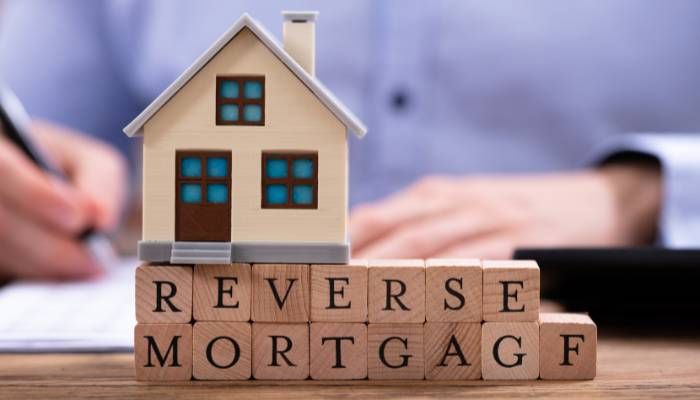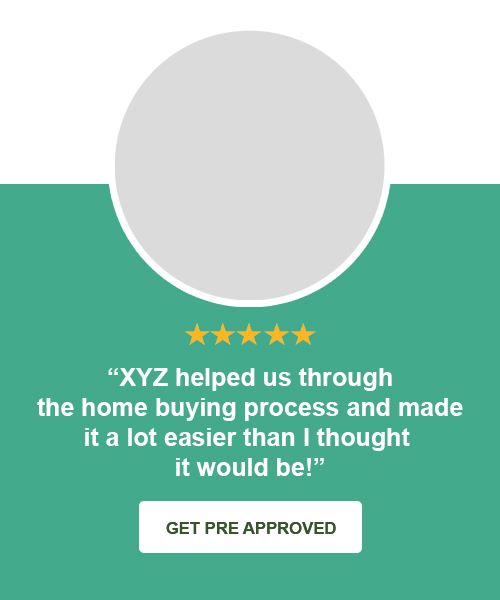
The role of the National Reverse Mortgage Lenders Association (NRMLA) in promoting reverse mortgage loans
Jump To
For those looking to supplement their retirement income, reverse mortgages can provide a great financial lifeline. But with so many different lenders offering these loans, how can you know which one is the best fit for you? The National Reverse Mortgage Lenders Association (NRMLA) is an organization dedicated to promoting responsible lending and helping people make informed decisions about their reverse mortgage loan options. In fact, since its founding in 1997, the NRMLA has grown to serve over 600 members across the United States—representing 95% of all reverse mortgage transactions!
With such a large presence in the industry, it’s no surprise that the NRMLA plays a major role in advocating for safe and transparent lending practices. From providing educational resources to working with government agencies on compliance policies, this organization works tirelessly to ensure that borrowers have access to the best possible products. Additionally, the NRMLA provides support for lenders and brokers so they can better understand regulations and stay up-to-date on changes in the industry.
Reverse mortgages are an important tool for many retirees, and having an association like the NRMLA behind them helps borrowers rest assured that their interests are protected. With its commitment to responsible lending practices and consumer protection, there’s no question that this organization plays a vital role in making sure everyone gets access to quality reverse mortgage products.
What Is The NRMLA?
Have you ever heard of the National Reverse Mortgage Lenders Association (NRMLA)? Chances are, you may not have. But if you’re considering getting a reverse mortgage loan, it’s an important organization to be aware of. It plays a pivotal role in promoting reverse mortgages and helping those interested in taking out one understand what they involve.
The NRMLA is a trade association consisting of hundreds of mortgage lenders, brokers and other professionals who specialize in reverse mortgages across the U.S. It advocates for responsible lending practices and works to educate potential borrowers about the risks and rewards involved with these loans. The NRMLA also provides resources such as information on lenders, tips on finding the right lender and industry news to help borrowers make informed decisions.
It’s clear that the NRMLA has a lot to offer those looking into reverse mortgages—not just from its educational resources but from its advocacy efforts too. In the next section, we’ll explore what benefits members receive when joining this organization.
The Benefits Of NRMLA Membership
Membership of the National Reverse Mortgage Lenders Association (NRMLA) has a plethora of benefits for those interested in reverse mortgage loans. With a membership, you’ll be joining an association that is dedicated to providing strong industry standards and helping its members grow their business. Let’s explore the many advantages of being an NRMLA member.
Firstly, NRMLA provides its members with comprehensive education and training programs to ensure they stay abreast of the latest developments in the reverse mortgage market. Whether you are new to the industry or an experienced professional, NRMLA offers resources to help you stay informed and successful in your business. The association also provides opportunities for networking with peers through conferences, seminars and other events.
Additionally, joining NRMLA gives you access to a variety of tools designed to help simplify and streamline your processes so that you can better serve customers. These tools include software solutions, webinars, e-learning programs, white papers and more – all designed to help you save time and money while meeting ever-evolving regulatory requirements. With these resources at your fingertips, you can become a leader in the reverse mortgage loan field.
Being an NRMLA member also means having access to exclusive discounts on services such as insurance and technology solutions that can help support your business goals. Plus, with its Code of Ethics & Professional Responsibility, members are held accountable for maintaining high levels of integrity when dealing with customers and colleagues alike. All these benefits make becoming part of the NRMLA family well worth it!
As we’ve seen here today, membership in the National Reverse Mortgage Lenders Association carries many advantages for those interested in reverse mortgages – from educational resources to networking opportunities and discounts on services. Now let us turn our attention to what responsibilities come with being part of this organization…
The Responsibilities Of A NRMLA Member
The responsibilities of an NRMLA member are quite extensive. It’s important to remember that members are expected to adhere to the highest standards of professional conduct and ethics. This means that any advice or assistance provided by a member must be in the best interests of the consumer and should not be used for self-promotion.
Members are also responsible for ensuring that all reverse mortgage loan documents are accurate and up-to-date. They should also ensure that all fees, costs, and terms associated with a loan are disclosed properly and in accordance with state and federal laws. Additionally, members must adhere to all state licensing requirements, including continuing education requirements. Finally, NRMLA members must uphold fair lending practices when working with potential borrowers to help them make informed decisions about their reverse mortgage loan options.
It’s clear that NRMLA membership is a serious commitment – one that requires dedication and vigilance on the part of each individual member throughout their tenure as an NRMLA member. That being said, it’s rewarding work knowing that you’re helping others secure better financial futures through reverse mortgage loans. And with that, let’s take a look at what goes into the reverse mortgage loan process.
The Reverse Mortgage Loan Process
The reverse mortgage loan process is an intricate one, and it’s important for borrowers to be aware of the complexities when considering this type of loan. It’s like stepping into a labyrinth – if you don’t have the proper guidance, you may find yourself lost in a jumble of paperwork and rules.
The NRMLA plays an important role in educating both borrowers and lenders about the process. This includes helping members understand the laws that govern reverse mortgages, as well as providing resources such as training programs and consumer guides to ensure everyone is equipped with the knowledge they need to make sound decisions.
In this way, the NRMLA acts as a beacon of light in guiding borrowers through the winding paths that come along with reverse mortgage loans. By providing education and resources, they empower borrowers with the information necessary to make smart choices when it comes to their finances.
TIP: One key thing to remember when taking out a reverse mortgage loan is that you are responsible for paying taxes on any proceeds from your home’s equity. Be sure to consult your tax advisor for details about filing requirements and deductions related to your loan before signing on the dotted line.
NRMLA Education And Outreach
The National Reverse Mortgage Lenders Association (NRMLA) plays an important role in the reverse mortgage industry, particularly when it comes to education and outreach. As such, their mission is to ensure that people understand how reverse mortgages work and that they are conducted safely, responsibly and ethically. Here are some of the ways NRMLA works to educate consumers about reverse mortgages:
- NRMLA provides a wide range of educational resources to inform consumers on the basics of a reverse mortgage loan. These include webinars, booklets and other materials designed to help borrowers make informed decisions about whether this type of loan is right for them.
- Through its website, NRMLA provides access to a database of lenders offering reverse mortgages. This helps potential borrowers compare different reverse mortgage products from various lenders with ease.
- NRMLA also offers consumer protection programs such as its “Safe Home” initiative which is designed to protect seniors from fraud or abuse related to reverse mortgages.
- Finally, the association hosts conferences throughout the year where industry experts share their knowledge on best practices for making sure that all parties involved in a reverse mortgage transaction can benefit from the experience.
By providing these resources, NRMLA has become a trusted source of information on reverse mortgages for both consumers and lenders alike. With their help, more consumers are able to make informed decisions about this financial product and take advantage of its potential benefits without putting themselves at risk. From here we move onto discussing NRMLA’s guidelines and regulations concerning the use of reverse mortgages.
NRMLA Guidelines And Regulations
Gosh, it’s almost like the NRMLA is running a business or something! Yeah, you heard me right: 6. NRMLA Guidelines and Regulations. I mean, what’s next? A code of ethics? Huh, who’d have guessed!
Look, I know we just want to get these reverse mortgages done and over with so we can all move on with our lives. But the NRMLA has to ensure that those pesky guidelines are followed – you know, things like loan terms and disclosure requirements; they have to be adhered to. Nobody wants any surprises here. We got to make sure everyone involved knows exactly what they’re getting into before signing on the dotted line.
But hey! The good news is, when it comes to Reverse Mortgage Loans (RMLs), the NRMLA is an invaluable resource for both lenders and borrowers alike. Their extensive knowledge base provides essential information on all aspects of RMLs. And their guidance helps ensure a smooth transaction process for everyone involved in the loan process. Now we got to just wait for their code of ethics…
NRMLA Code Of Ethics
The NRMLA Code of Ethics is an important part of the organization’s commitment to protect and serve reverse mortgage borrowers. This code sets a standard for lenders to uphold when offering their products, ensuring that consumers receive fair and competitive terms.
The Code of Ethics calls on members to adhere to ethical standards in all areas of their business, including marketing and advertising, customer service, and compliance with applicable laws. It also requires lenders to provide accurate information about loan products and educate borrowers on how they can best utilize their funds. The Code of Ethics also prohibits deceptive practices such as bait-and-switch tactics or charging excessive fees.
The NRMLA is dedicated to promoting the responsible use of reverse mortgages. Their Code of Ethics helps ensure these loans are used in a way that benefits both lenders and borrowers alike. As the next step in our exploration into the NRMLA’s role in promoting reverse mortgage loans, we’ll take a look at the organization’s industry standards.
NRMLA Industry Standards
The NRMLA also plays an important role in setting industry standards for reverse mortgage loans. By outlining the expectations for lenders and loan officers, the NRMLA helps to ensure that consumers are protected and have access to the best products available. Here are 8 ways in which the NRMLA sets industry standards:
- Establishing guidelines for pricing, disclosure, servicing and marketing of reverse mortgages;
- Educating members on responsible lending practices;
- Promoting consumer protection by enforcing compliance with state and federal regulations;
- Developing continuing education requirements for loan originators;
- Facilitating communication between lenders and regulators;
- Raising public awareness about reverse mortgages;
- Advocating for consumer rights through legislative action; and
- Encouraging feedback from consumers to identify areas of improvement in service delivery and product design.
These industry standards set by the NRMLA help to ensure that all parties involved in a reverse mortgage transaction are informed and compliant with applicable laws, so that all parties can be confident when entering into the agreement. With these measures taken by the NRMLA, consumers can be sure they are getting a fair deal when considering a reverse mortgage loan. As we move on to discuss consumer protection from the NRMLA, it’s clear that this organization is dedicated to protecting homeowners through their expertise and guidelines set forth in their code of ethics..
Consumer Protection From NRMLA
The National Reverse Mortgage Lenders Association (NRMLA) plays an important role in keeping the reverse mortgage loan industry safe for consumers. By setting industry standards, NRMLA is working hard to make sure that borrowers are getting the best possible deal when they take out a reverse mortgage loan.
It’s like a game of tug-of-war, only with less physical contact. On one side of the rope is the NRMLA, setting strict guidelines and standards to protect borrowers from unscrupulous lenders and predatory practices. On the other side of the rope are lenders who may be tempted to try to take advantage of vulnerable seniors or simply cut corners in order to make more money.
The NRMLA’s rules of engagement ensure that both sides have a fair fight, with clear boundaries and expectations that everyone involved must follow. By providing strong consumer protections, NRMLA helps level the playing field for all parties involved in a reverse mortgage loan transaction – including borrowers, lenders, and even investors who provide financial backing for these loans. With these safeguards in place, everyone can rest assured that their interests are being looked after and that they will get a fair deal when taking out a reverse mortgage loan.
As we look ahead to the future of NRMLA and reverse mortgage loans, it is clear that this sector will continue to be an important way for seniors to access home equity while protecting themselves from predatory practices by certain lenders.
The Future Of NRMLA And Reverse Mortgage Loans
The future of the National Reverse Mortgage Lenders Association (NRMLA) and reverse mortgage loans is an exciting one. We are in a moment of history where the NRMLA has a unique opportunity to revolutionize how people think about retirement planning. For decades, reverse mortgage loans have been seen as a last resort for those who have exhausted other options. But with the NRMLA leading the charge, we could see this stigma dissipate faster than you can say “reverse mortgage”.
As advocates for both lenders and borrowers in the reverse mortgage loan market, the NRMLA emphasizes consumer protection. They have created an industry-wide set of guidelines that all members must adhere to in order to ensure customer safety and satisfaction. By taking steps such as this, they are helping to make sure that anyone who decides to pursue a reverse mortgage loan has access to transparent information and ethical lending practices.
In the years ahead, it’s likely that we’ll see more support from the NRMLA in terms of education and awareness around reverse mortgages. With its commitment to consumer protection at the forefront, it’s only a matter of time before these types of loans become mainstream financial instruments – as commonplace as traditional mortgages or 401(k)s! All in all, it looks like today is just the beginning of a brighter tomorrow for NRMLA and reverse mortgage loans alike.
Conclusion
In conclusion, reverse mortgage loans can be a great way for seniors to stay in their homes and have access to additional funds. It is important to understand the requirements and potential risks associated with this kind of loan before making a decision. The National Reverse Mortgage Lenders Association (NRMLA) helps educate consumers on reverse mortgages and provides resources to help them find lenders in their area. By taking advantage of NRMLA’s services, seniors can make an informed decision about whether or not a reverse mortgage loan is right for them.
Just like any major financial decision, it is important to weigh the pros and cons when considering a reverse mortgage loan. Taking advantage of the many resources offered by NRMLA is like finding a trusted advisor who will help guide you through the process. While you have to do your own due diligence, having access to unbiased information from experts can help make the process much easier.
Reverse mortgages are an invaluable tool for seniors who want to stay in their homes and access additional funds, but they come with a certain level of risk that must be considered carefully. With the help of the NRMLA, seniors can make an educated decision about whether or not this type of loan is right for them.
FAQs
How Can I Find A Reverse Mortgage Lender In My Area?
I often hear the term reverse mortgage and wonder what it is. I recently discovered the National Reverse Mortgage Lenders Association (NRMLA), and now understand that they are dedicated to promoting reverse mortgage loans. The NRMLA can be a great resource for those seeking to learn more about these types of loans or find a lender in their area.
The NRMLA has an online directory that lists lenders by state, as well as provides helpful information to those considering taking out a reverse mortgage loan. Additionally, they have educational resources available, such as articles and videos that provide valuable insight into how these loans work and what to consider before applying for one. They even have an interactive calculator that allows you to input your own information and see estimates of how much money you could potentially qualify for with a reverse mortgage loan.
If you’re considering taking out a reverse mortgage loan, the NRMLA can be a great place to start your research. It’s important to speak with several lenders in your area so you can compare rates, terms, and other factors before making any decisions. Doing your research ahead of time will ensure you get the best deal possible on your loan.
Are There Any Special Requirements To Qualify For A Reverse Mortgage Loan?
Have you been considering a reverse mortgage loan but are unsure if you meet the qualifications? It’s understandable to feel some apprehension when making such an important financial decision, and the National Reverse Mortgage Lenders Association (NRMLA) can help. They are dedicated to promoting reverse mortgage loans and ensuring that borrowers understand their rights and responsibilities.
But what does it take to qualify for a reverse mortgage loan? Well, according to the NRMLA, there are certain requirements that must be met. First off, you must be at least 62 years old and own your home outright or have a low mortgage balance. Additionally, you must live in the property as your primary residence and attend counseling from an approved HUD counselor prior to obtaining the loan. You also need to have sufficient income or assets to cover taxes, insurance, and other related costs associated with owning a home.
Fortunately, once these requirements are met, the NRMLA is ready to help you find a lender in your area who can provide you with more information on how a reverse mortgage loan might work for you. With their help and guidance, you can feel confident that you will get the right loan for your individual situation.
Are There Any Risks Associated With Taking Out A Reverse Mortgage Loan?
When considering taking out a reverse mortgage loan, it’s important to understand the associated risks. As with any loan, there are risks that should be considered carefully. One of the biggest risks of taking out a reverse mortgage loan is the potential for borrowers to outlive their loan and not have enough money for living expenses. For example, if a borrower takes out a reverse mortgage loan at age 65 and lives until age 90, they will need additional income to live on after the funds from the reverse mortgage are depleted.
The NRMLA works to ensure that all borrowers understand the potential risks of reverse mortgages before signing up for one. They provide resources such as online calculators and informational videos to help borrowers determine whether or not a reverse mortgage is right for them. They also provide counselors who can explain all of the details in plain language so that borrowers can make an educated decision about whether or not they want to proceed with a reverse mortgage loan.
It’s also important to remember that when it comes to taking out loans, there is no one-size-fits-all option. Borrowers should consider all of their options carefully and do their research before making any decisions about which type of loan might best meet their needs. The NRMLA’s website provides many resources for those looking into taking out a reverse mortgage loan and can help them evaluate the risks and benefits associated with this type of loan. Ultimately, only after understanding all aspects involved should someone decide if taking out a reverse mortgage is right for them.
What Type Of Counseling Is Required Before Taking Out A Reverse Mortgage Loan?
When considering a reverse mortgage loan, it’s important to understand that certain counseling is required before taking one out. The National Reverse Mortgage Lenders Association (NRMLA) works to ensure that potential borrowers are well informed about the risks associated with reverse mortgages, and encourages individuals to receive counseling prior to making any decisions.
Counseling is provided by an approved HUD counselor who can explain the terms of a reverse mortgage loan and help you decide if it’s the right choice for you. It’s important to note that this counseling isn’t just for seniors; anyone co-signing a loan or helping manage the funds must also receive counseling. During the session, you will be given information about all your options so you can make an informed decision that best suits your needs.
The NRMLA takes its role seriously in promoting responsible reverse mortgage lending, and providing access to unbiased counseling is one way they do this. By ensuring all parties involved have received proper education about their options, NRMLA helps reduce the risk of borrowers taking on loans they aren’t prepared for.
Are There Any Costs Associated With Obtaining A Reverse Mortgage Loan?
The question of whether or not there are costs associated with obtaining a reverse mortgage loan is an important one. The answer depends on the type of loan you get, but it’s generally true that there are fees and other costs associated with taking out a reverse mortgage loan. It’s important to understand the costs so you can make an informed decision about the best option for you and your situation.
When considering a reverse mortgage loan, you will likely encounter fees for things like appraisals, title insurance, credit reports, origination fees and closing costs. Servicing fees may also apply if your lender requires them; these are fees charged by the lender to cover their administrative costs. You might also be charged for counseling sessions, which are mandatory before taking out a reverse mortgage loan.
TIP: When considering a reverse mortgage loan, it’s important to research all of the potential costs associated with the particular type of loan you’re considering – including both upfront and ongoing costs – so that you can make an informed decision about what’s best for your situation. Additionally, you should consider talking to an NRMLA-certified counselor or lender who can provide information and guidance throughout the process.
Get A Pre-Approval Today!

Home Mortgage Calculator


Leave a Reply